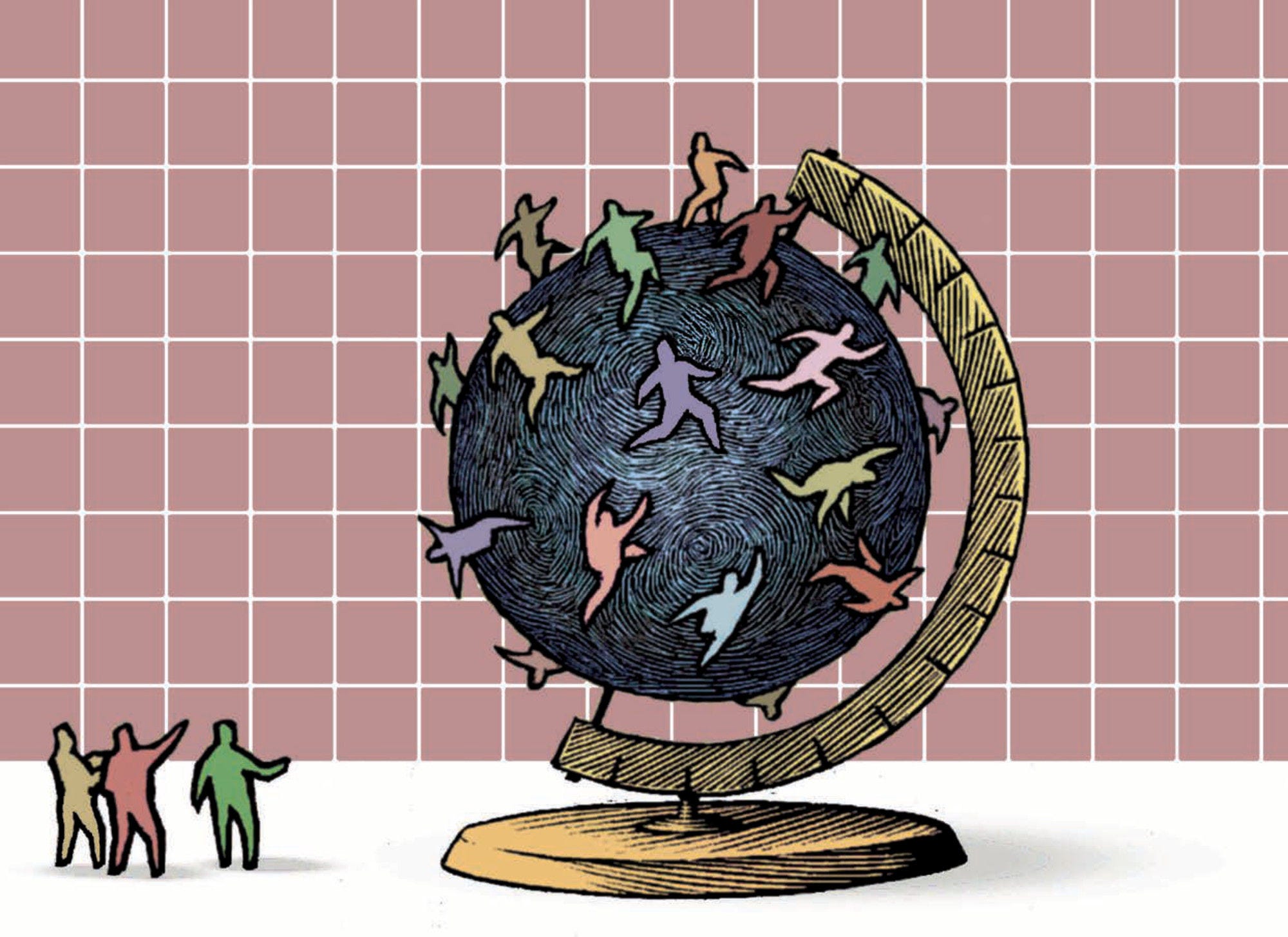In 2017, 11 000 new immigrants obtained a residence permit longer than 12 months in Romania (excluding EU citizens), 14.9% more than in 2016. This figure comprises 25% labour migrants, 29.2% family members (including accompanying family), 28% who came for education reasons and 17.8% other migrants.
Around 1 500 short-term permits were issued to international students and 300 to temporary and seasonal labour migrants (excluding intra-EU migration). In addition, 12 000 intra-EU postings were recorded in 2017, an increase of 20% compared to 2016. These posted workers were generally on short-term contracts.
Moldova, China and France were the top three nationalities of newcomers in 2017. Among the top 15 countries of origin, China registered the strongest increase (1 300) in flows to Romania compared to the previous year.
In 2018, the number of first asylum applicants decreased by 58.6%, to reach around 1 900. The majority of applicants came from Iraq (1 000), Syria (400) and Iran (100). The largest increase since 2017 concerned nationals of Bangladesh (55) and the largest decrease nationals of Iraq (‑1 700). Of the 1 300 decisions taken in 2018, 45.9% were positive.
Emigration of Romanians to OECD countries increased slightly, by 2%, to 427 000. More than half (54%) of this group migrated to Germany, 11.9% to the United Kingdom and 10.2% to Italy.
In 2017‑2018, legislative priorities focused on increasing protection for Romanian workers abroad, as well as facilitating access to employment for foreign citizens.
Law No. 232/2017 on the protection of Romanian citizens working abroad addresses the legal framework for working abroad. It establishes measures to manage and coordinate labour migration abroad and to prevent and combat illegal migration. Among other changes, it defines conditions necessary for brokering employment of Romanian citizens abroad and establishes the Labour Inspectorate's responsibilities regarding oversight of employment agencies.
Since 2007, Romania has set annual quotas for entry of foreign workers. Until 2018, quotas were separated by category. Initial 2018 quotas – 7 000 work permits – were the same as in 2017. Of this total, 4 000 permits were for permanent workers, 1 200 for posted workers, 700 for intra-corporate transferees, 500 for highly qualified workers, 400 for seasonal workers, 100 for trainees, and 100 for cross-border workers. Following saturation of the quota, the government increased it to 8 000 permanent workers and 5 200 posted workers. In the face of high demand, the quota was set at 13 500 for 2019. Early in 2019, it was increased to 20 000 spots available across all foreign worker categories.
Law No. 247/2018 transposed the recast EU Students and Researchers Directive 2016/801 but also introduced a number of significant changes effective 10 November 2018. It lowered the salary thresholds for standard work permits and for the EU Blue Card by at least 50%, to RON 1 900 (EUR 400) and RON 8 234 (EUR 1 735) respectively. Applicants are no longer required to obtain a certificate of recognition of their foreign diploma at the Romanian Ministry of Education; instead employers will be responsible for verifying qualifications. Companies which violated immigration law in the previous six months will be barred from recruiting and new fines were introduced for preventing inspection or failing to show documents. The labour market test was simplified, requiring only one advertisement rather than three. Entry quotas will no longer distinguish between categories.
Government Decision No. 676/2017 granted short-term facilities for legal admission to Romania to 100 Syrian citizens from Turkey, as well as the extension of the right of temporary residence in Romania.
Government Decision No. 40/2018 established a resettlement quota of 109 refugees for the period 2018‑19.
The Ministry of Interior and Administration adopted a series of administrative orders that facilitate and ensure the proper functioning of centres for asylum seekers, including Order No. 113/2017 on the provision of material assistance for people staying in asylum centres and Order No. 62/2017 on General Immigration Inspectorate (IGI) Standards for services for the reception and accommodation of asylum seekers.
Negotiations on social-security agreements are ongoing with Montenegro, North Macedonia, Chile and China. An agreement with Uruguay was signed in 2017 and is undergoing ratification.
Amendments to citizenship law in September 2017 regulate the acquisition of Romanian citizenship by children of foreign citizens and stateless persons. They establish clear guidelines designed to eliminate risk of differing interpretations.
For further information:
www.insse.ro
www.mai.gov.ro
